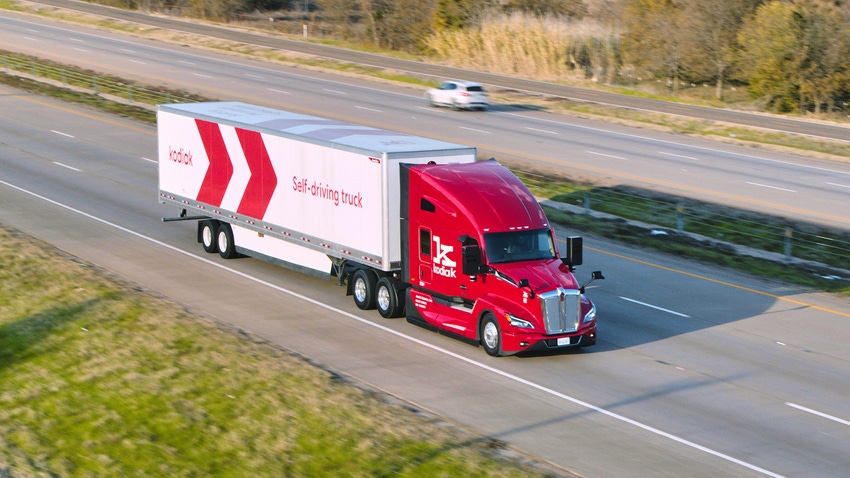In the dynamic landscape of autonomous long-haul trucks, Kodiak Robotics stood out as a notable success in 2023, outpacing several high-profile competitors who exited the sector. While industry players like Embark Trucks and TuSimple faced challenges, Kodiak, based in Silicon Valley, continued expanding its self-driving freight solutions across the southern states of the U.S., covering more than 70,000 miles per month over 18,000 miles of highways.
In an exclusive interview with IoT World Today, Kodiak’s CEO and co-founder, Don Burnette, likened the company’s steady progress to the “tortoise and the hare” fable, emphasizing their methodical and calculated approach. Burnette highlighted the significance of experience in the industry and identified Aurora as the other key player in what he sees as a “two-horse” race.
See also: Kodiak Robotics Unveils Autonomous Test Vehicle for U.S. Military
Burnette shared, “We’ve been the tortoise. We’ve been moving slowly. We’re small, we’ve been quiet. But really, we’ve taken over this industry.”
Kodiak is poised to make significant advancements in 2024, with plans for fully driverless testing on public roads in Q3. Burnette emphasized the importance of a redundant truck platform, a critical component for the safe deployment of autonomous trucks. He explained, “We’re looking forward to gaining access to a redundant platform in 2024 that will allow us to finally have the reliability that we believe is necessary in order to safely go driverless on public roads. That’s the missing piece.”
The initial focus will be on the Dallas-Houston route, with the company aiming for commercial operations with driverless trucks by 2025. Burnette shared his optimism about Kodiak’s operations in 2024, stating, “We feel good about operations in 2024.”
Beyond domestic expansion, Kodiak is considering international markets such as Brazil, Australia, the Middle East, and Asia. Burnette admitted, “Brazil… Australia… Some areas of the Middle East and Asia… there are massive, long stretches of highway where lots of goods are moved. These areas are ripe for innovation, perfect use cases for the self-driving truck. So, yes, we’re definitely looking in that direction.”
The recent testing of Kodiak’s autonomous technology on a Ford F-150, as part of a $50 million deal with the U.S. military, opens up possibilities for the technology to be adapted to various vehicles. Burnette explained, “We can operate our system more or less anywhere, in any environment – highways, surface streets, slow roads, dirt roads, off-road, in the field, through the Rock Valley. Additionally, it’s incredibly modular.”
See also: IKEA teams with Kodiak Robotics to test self-driving freight delivery in Texas
While acknowledging the regulatory challenges, Burnette remains optimistic about the future of autonomous vehicles. Despite negative headlines in the latter half of 2023, particularly surrounding Cruise, he envisions a landscape where self-driving vehicles become a common sight worldwide within the next two decades. He predicted, “Twenty years from now, you will definitely be able to go anywhere, at least in the U.S., but probably worldwide, and see a self-driving vehicle in every direction that you look.”

